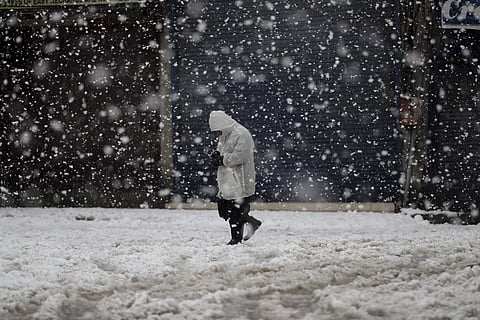

Ab Aadat Hogayi Hai Lockdown Ki, says Mehran. Even if I wanted to, I couldn't relate to him. The lockdowns that Mehran and I are used to are quite different. I was forced to stay indoors, to keep myself safe from a deadly virus. I was privileged, safe, with my family. I worked from home using my laptop and high speed-WiFi. I used the same network to conduct virtual Netflix Parties with my friends and video call them for hours. We challenged each other to upload photographs on Instagram and whip the perfect Dalgona Coffee. People like me went on virtual dates and attended paid online events. Once in a while, we drove our cars an extra kilometre, when we stepped out to buy essentials.
Mehran couldn't relate to my version of a lockdown.
Mehran Shafiq is a 20-year-old medical student from Kashmir, who studies in Bangladesh. The first time he ever experienced a lockdown was when he was 10, in 2010. After this, he saw the valley undergo subsequent lockdowns in 2016 and then in 2019. If you're one for precision, on August 5, exactly a year ago, when the government abrogated Article 370 of the Constitution, which permitted special status to Jammu and Kashmir.
Sitting in his home, he recalls his various lockdowns. "I do not remember much from 2010. But in 2016, there was violence everywhere. In 2019, even though people were angry, no one took law and order in their hands. In 2016, our landlines and broadband connections worked. But there was a complete blackout in 2019," he recalls. The things that happened that day scarred him so much that he tells me that it scared him more than COVID ever could.
On August 5, the first thing that Mehran did after waking up was switch on the TV. "There was already chaos among the masses. There were troops everywhere. By the previous evening, government forces started occupying schools and hostels. Communication was also snapped," he recalls. "I remember news channels broadcasting news about a curfew across the entire state and that the government may take a major decision. But we still had no idea of what was going to happen. The government kept on saying that all was well," he says. "None of us expected this."
After the news got out that Kashmir's special status had been rescinded and major political leaders placed under house arrest. they expected that things would ease in a while. It was a belief that would never see any fruition.
Despite the lockdown, Mehran would go out with his friends, once in a while, much to his family's despair. "They were scared because protests were going on all the time and often these turned into violent clashes between the armed forces and Kashmiri youth. So, there was always a chance that I would get injured, killed or arrested," he says.
But life went on.
After the whole world was besieged by the COVID pandemic, some of the feelings that people have been airing on social media have irked him. The 'lockdowns are opportunities' statement, unsurprisingly, irritates Mehran. "Lockdowns here are very different. How can we enjoy life when there is bloodshed on the streets outside? It doesn’t matter who is dying. It hurts me when I see anyone getting killed. There is no reason for us to enjoy a lockdown of any sort," he says. That wasn't all of it. He saw many of his acquaintances slip into depression because of the isolation. "Not everyone can go outside and walk. That’s why depression is high among Kashmiris," he says.
He returned home from Bangladesh when the number of COVID cases started rising. His classes are held online, but he isn't able to join, owing to the slow connectivity. "Due to the suspension of high-speed internet, students suffer a lot. My online classes are also going on but due to slow speed, I am not able to join my classes," he says.
Despite that, he says that he is used to lockdowns, like most Kashmiris.
But you and I must remember. Our lockdown diaries will never be the same as Mehran's.
